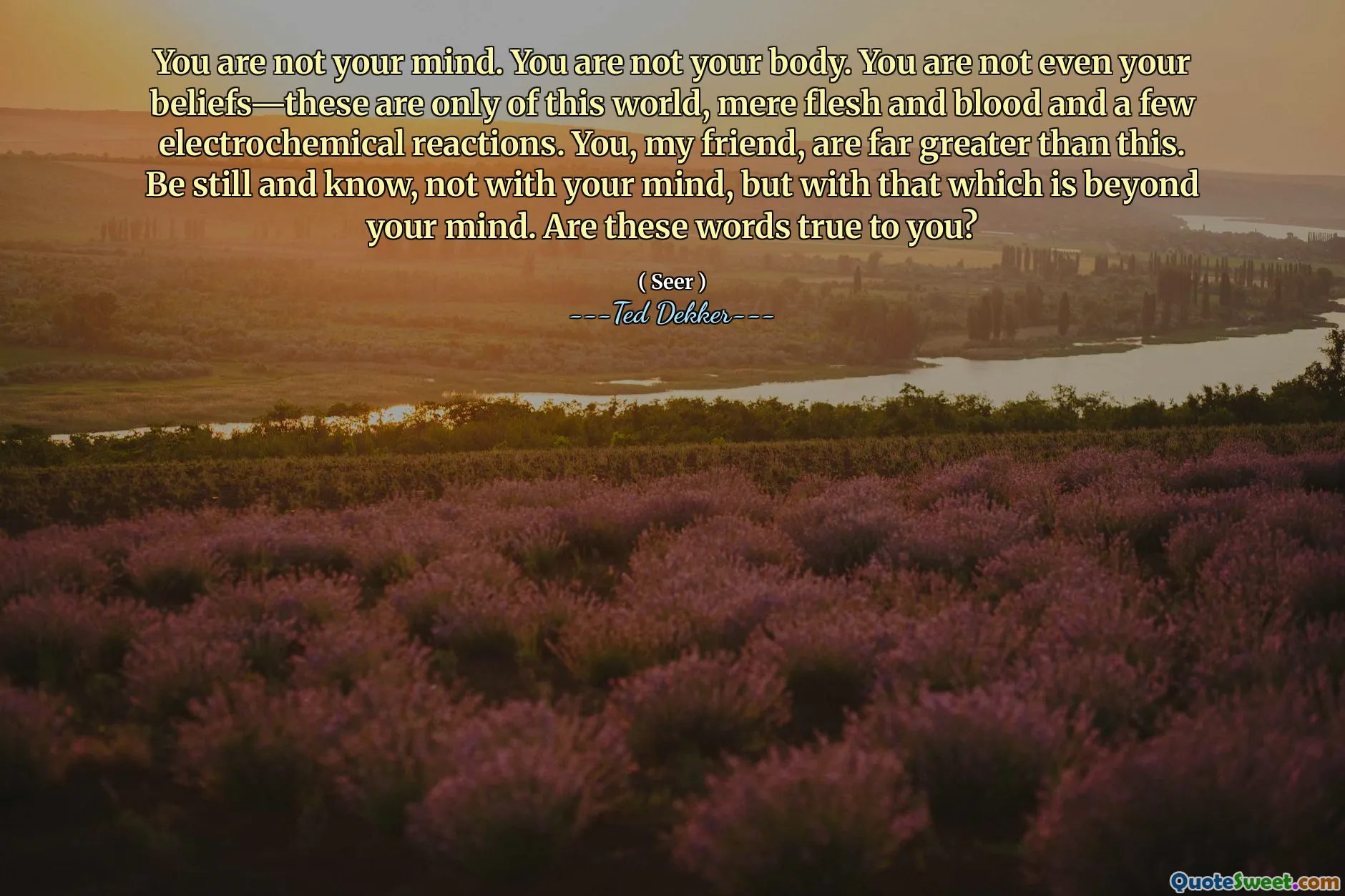
You are not your mind. You are not your body. You are not even your beliefs—these are only of this world, mere flesh and blood and a few electrochemical reactions. You, my friend, are far greater than this. Be still and know, not with your mind, but with that which is beyond your mind. Are these words true to you?
This quote encourages deep self-awareness and suggests that our true essence extends far beyond our physical form and mental constructs. It invites us to look beyond the surface of our thoughts, beliefs, and physical sensations to recognize a higher, more expansive part of ourselves that exists beyond ordinary perception. The idea that we are not defined solely by our minds or bodies resonates with many spiritual philosophies, which posit that true understanding and connection come from experiencing that which transcends the material world.
The emphasis on being still and knowing hints at meditative or contemplative practices, where silence and calmness open the door to greater insight. In daily life, it's easy to identify ourselves with our thoughts, emotions, or beliefs, but this quote challenges us to detach from these transient aspects and tap into a deeper state of consciousness or awareness. Recognizing that our beliefs and perceptions are limited by the worldly lens they are filtered through allows us to approach life with humility, curiosity, and openness.
Such an acknowledgment can foster inner peace, as it suggests that the true self is unchanging and eternal, unaffected by the chaos or challenges of this temporary existence. It aligns with teachings from various spiritual traditions—such as mindfulness in Buddhism or the concept of the true self in Advaita Vedanta—reminding us that liberation or enlightenment involves realizing this core identity that exists beyond our physical and mental components. Our journey involves quieting the mind, listening inward, and embracing that which always was and always will be, offering a profound sense of unity and purpose.
The question at the end, "Are these words true to you?" invites personal reflection, urging us to examine our own understanding and experience of self beyond the superficial layers.






